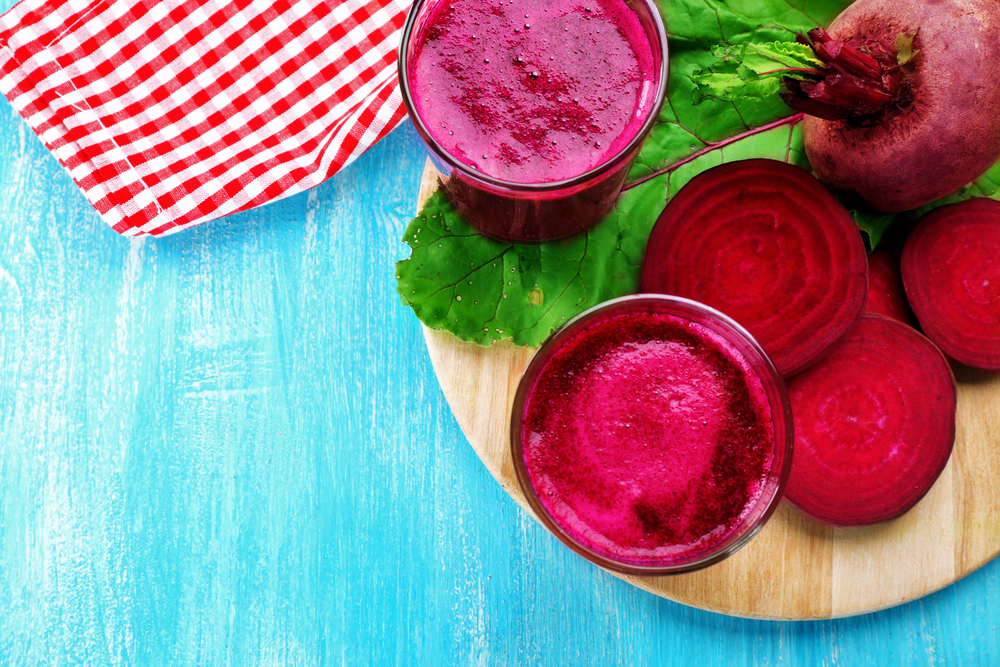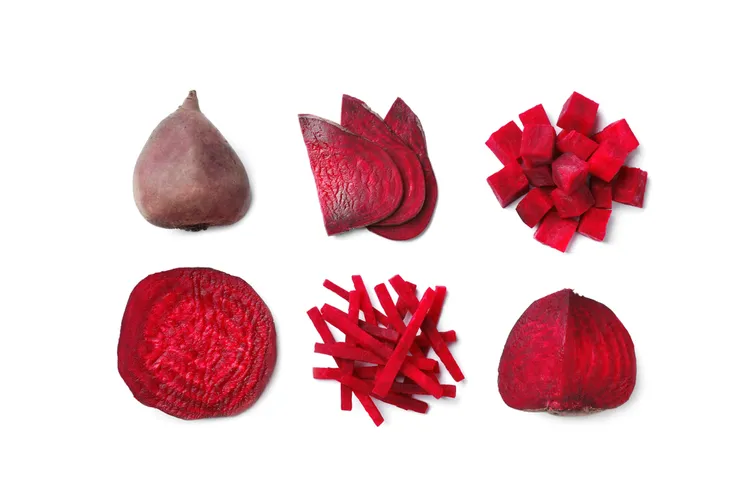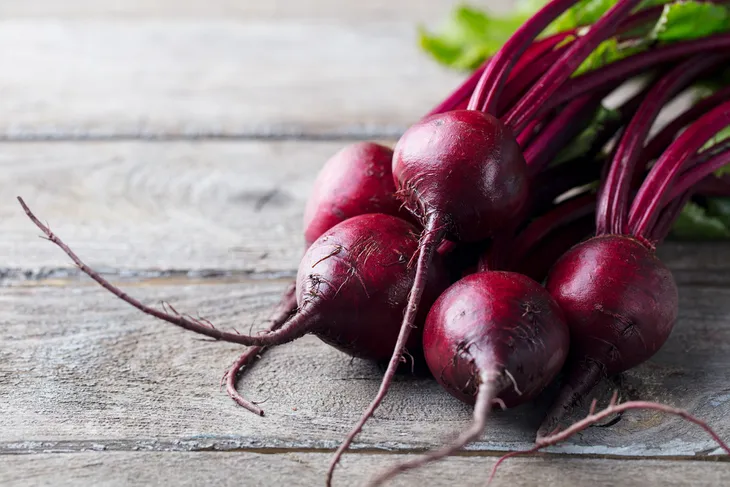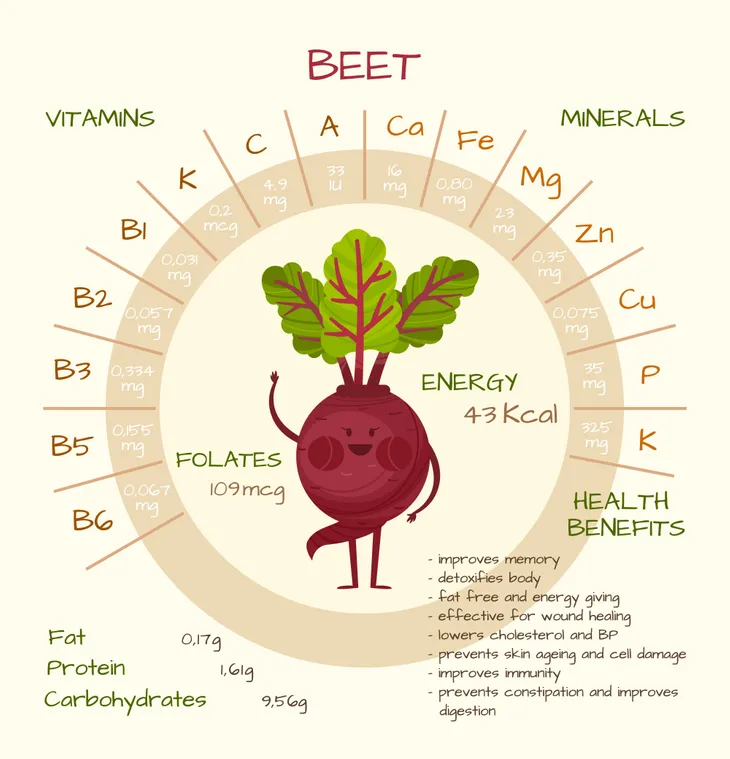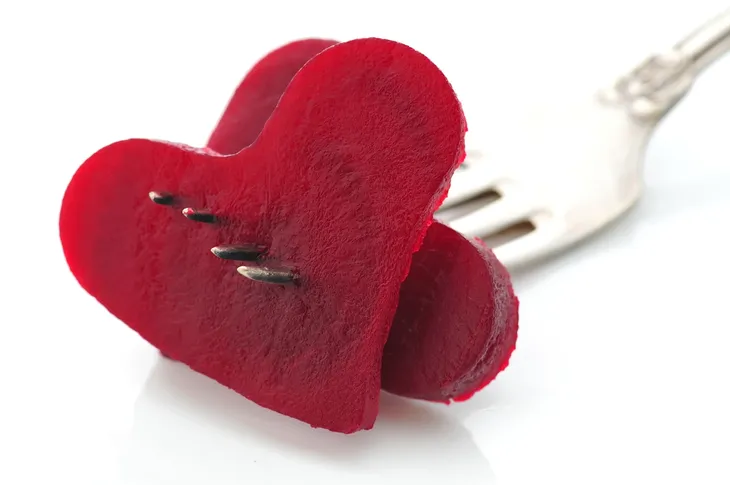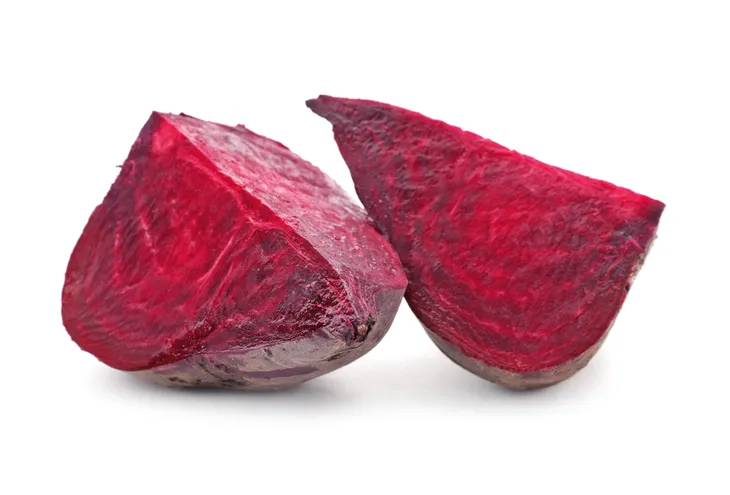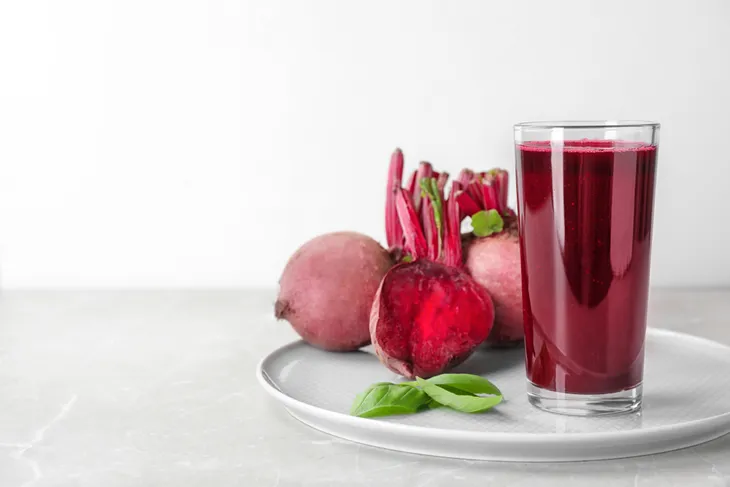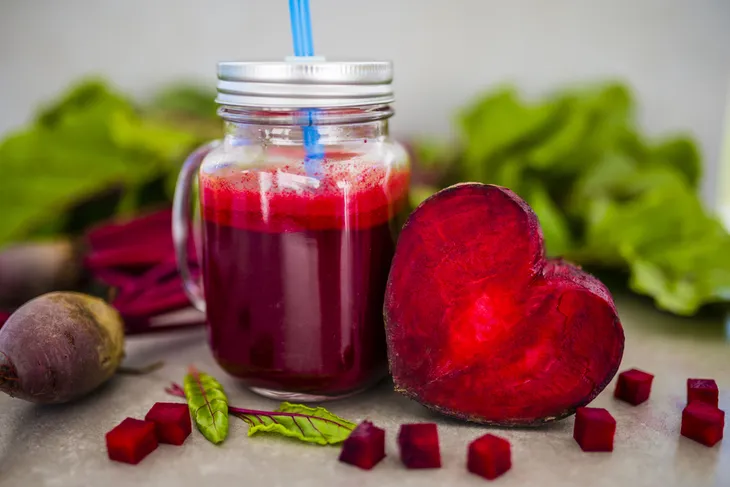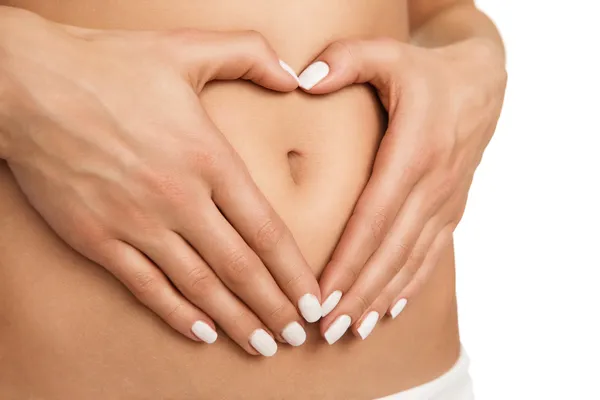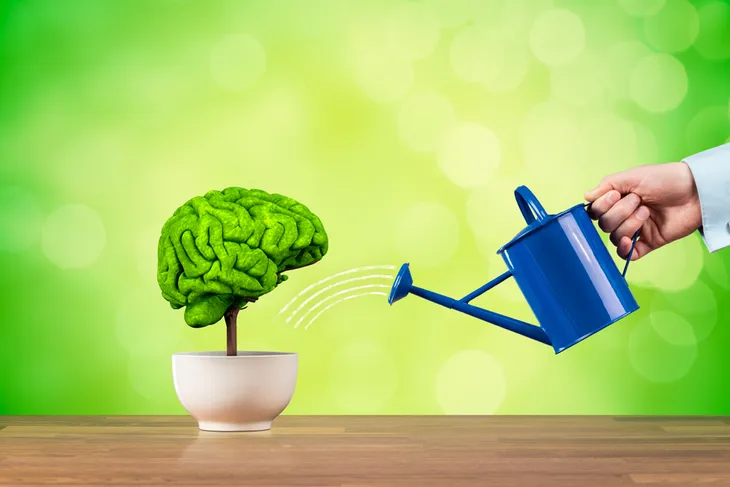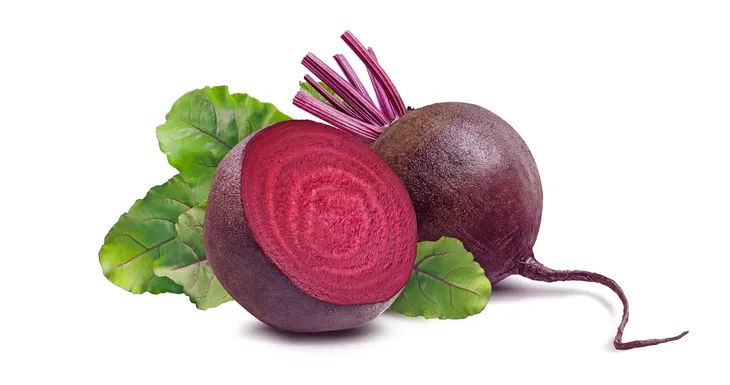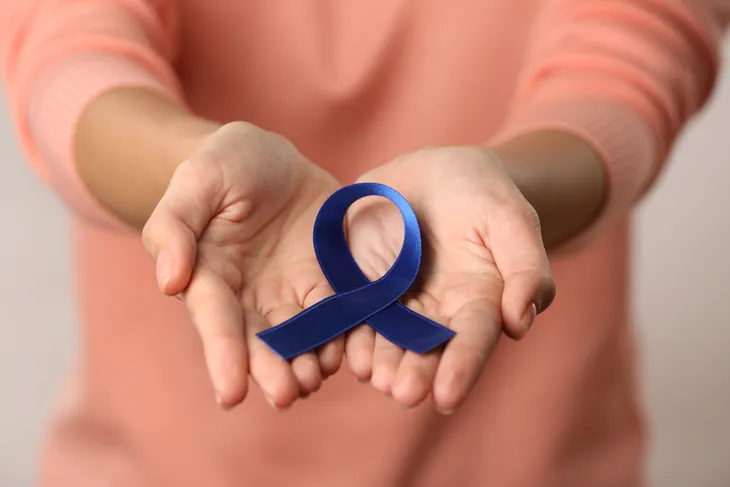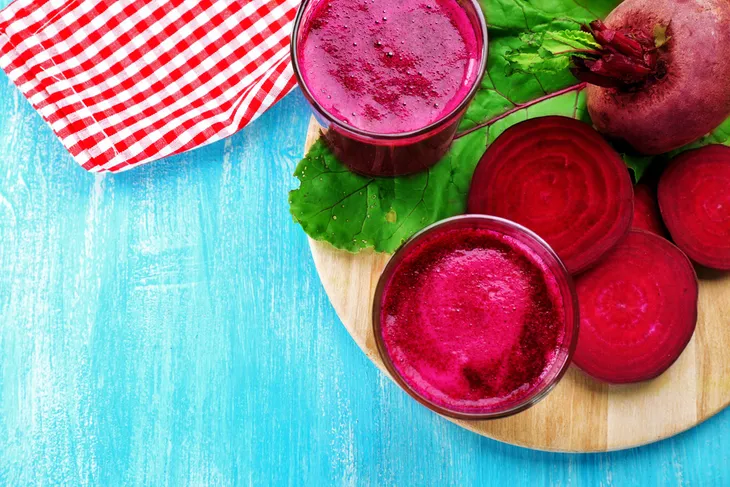Sure, they might look a little rugged on the outside, but beets are actually quite friendly when it comes to our health. Not only are they packed with sweet flavor and nutrition (i.e., antioxidants and nitrates), they’re also versatile for cooking and eating.
Just think about it, you can eat beets shaved raw on salads, picked and jared, roasted with root veggies, and even pureed into smoothies. Beets really are an all-around power food, and here’s why…
Prepare Any Way You Want?
You can make beets any way you want. If you like it hot, you can roast, grill and boil beets. It makes a great side for dinner and is easy to prepare. If you like it cold, Beets are an excellent addition to a salad after being cooked in oil and vinegar. You can even go raw sliced or shredded. Some people love pickled beets too. You could make a beet soup! There are so many options! What will you do?
Really when you think about it, beets are one of few foods that taste great in all forms. For instance, raw beets can be shredded fresh on salads or pickled and jared to be used as garnishes. But keep in mind that even though cooking beets does lower some of their antioxidant and nitrate abilities, research from WebMD assure these roots are still excellent for your health.
Eat From Leaf to Root
If you’re concerned with your environmental footprint, you’ll be thrilled to know that beets are one vegetable that you can nosh on from stems to roots. This means that you can eat the whole beet once it’s pulled from the ground and washed. Not a bit of this vitamin-, mineral-, and antioxidant-rich vegetable will go to waste.
To prepare whole beets for cooking, simply trim the stems just below the point where the leaves begin. Wash completely and set aside for salads, sautéing with garlic and olive oil, or for use in omelettes or smoothies. You already know that you can peel and shred fresh beetroot for salads, on sandwiches, or bake or roast chopped beets as a delicious side with olive oil, lemon, and garlic.
Let’s Talk Nutrients
Beets have a reputation for being an excellent source of several vitamins and minerals. According to research from the University of Wisconsin-Madison, beets are an excellent source of folate and manganese. Folate is important for synthesizing and repairing DNA as well as helping with cell division and growth, such as during pregnancy or infancy. Folate also helps to produce red blood cells and prevent anemia.
Many nutrition experts actually refer to beets as “crimson spinach”. In fact, beets are similar in nutrition to Popeye’s favorite power food, spinach due to high levels of iron, folate, and betaine.
Lowering Blood Pressure
Beetroot juice has been found to reduce blood pressure in certain individuals. This could have an effect on some factors of cardiovascular disease. This is likely a result of the nitrates in beet juice which are converted into nitric oxide in your body, helping you relax your blood vessels.
Plus, according to Registered Dietitian, Julie Upton, beets are high in inflammatory compounds as well as a natural source of betalain and betaine, which helps lower dangerous homocysteine levels in the blood and reduces the overall risk of heart disease.
Fight Inflammation
The betaines (pronounced like bee-ta-eens) within beets helps protect cells from environmental stress. Betaine is unique to beets and this nutrient helps to guard cells, proteins, and enzymes from environmental stress while fighting inflammation in internal organs and preventing all sorts of inflammation-based chronic diseases (i.e., cardiovascular disease).
But betaine not only fights inflammation and the chronic diseases that can develop due to inflammation–while it guards the organs from disease, betaine also helps increase stamina. A research study from UK-based Liverpool Hope University, found that beet juice increases oxygen uptake and boosts overall athletic performance.
Detox!
Beets have often been a staple of a detox diet, and are a great help to your liver. You’re getting plenty of antioxidants from beets and the betains (Bee-ta-eens) found within beets will help your liver better process toxins.
One other thing you should know. The red colour compound in beets known as betanin, is NOT broken down in the body. High concentrations may mean that things are going to be a little colourful at the end of the day (in your bowel movements). Don’t be concerned though, the red color of your stool is harmless and will cease once the beets are completely out of your system.
Lower Risk of Heart Disease
Heart disease is a major problem in America. According to the American Heart Association, almost half of Americans will have some form of heart disease by 2030. That’s pretty scary! So what can we do to protect ourselves? Well, apparently we can start by eating more beets.
Beets contain a “rich source of dietary nitrates, which act as vasodilators to aid in improving blood flow and reducing blood pressure,” writes Dr. Axe. Beets are great for heart health because they have the magic ability to improve blood flow and lower blood pressure because they contain a rich source of dietary nitrates. A study published in the British Journal of Nutrition found that in just one day, drinking beetroot juice can lower systolic and diastolic blood pressure. Another study found that beetroot juice can help lower LDL “bad” cholesterol levels in people with high blood pressure.
Improve Digestion
The best way to improve digestion and cure any inkling of constipation is to eat more fiber. Best way to do this is to load up on fiber-rich foods like beets. To give an idea of just how healthy a serving of beets is, Health.com points out that 1-cup of beets contains about 4-grams of dietary fiber. The fiber of beets is mostly insoluble fiber which is good because that’s the kind that helps with constipation, hemorrhoids, and diverticulitis. “insoluble fiber keeps food moving through the digestive tract and increases stool bulk, which helps with elimination,” says Leslie Bonci, MPH, RDN, a dietitian and owner of Active Eating in Pittsburgh to Prevention.
Health.com also notes that betaine has shown to improve a person’s digestion, but just a heads up, a beet-heavy meal might affect the color of urine and stools within the following 24 to 72 hours!
Good For The Brain
Beets are thought to be able to improve brain function because the nitric oxide relaxes and dilates the blood vessels which improves blood flow to the brain, explains Health.com. This is apparently even more important as we age because research has found that the brain’s ability to generate its own nitric oxide diminishes as people grow old, “along with our brain’s energy metabolism and neuron activity,” writes the source.
Health.com backs this claim up by citing a 2010 study which looked at 14 older men and women (an average age of 74) who ate foods with nitrate, including beet juice. Shockingly, it only took two days to notice a difference. Within this short period of time the blood flow to their brain improved, particularly to the frontal lobe which is responsible for most of our everyday functioning like organization, focus, and attention to detail.
Improve Athletic Performance
Looking to improve endurance and performance? You should probably start eating more beets because studies have shown that beets may help enhance athletic performance. Healthline writes that it’s the nitrate in the beet juice that affects “physical performance by improving the efficiency of mitochondria, which are responsible for producing energy in your cells.”
Healthline cites two studies that examined a group of seven and eight men who drank 17 ounces of beet juice every day for six days. The results showed they were able to workout longer with less exhaustion during high-intensity exercise. Another study with cyclists who drank 17 ounces of beet juice a day found that they were able to improve their cycling time trial performance over 2.5 and 10 miles. According to the source, to experience the best benefits of beet juice and athletic performance, it must be consumed 2 to 3 hours prior to the exercise.
Help Fight Chronic Disease
The biggest upside of eating healthy foods is that it keeps our body in prime condition to ward off illnesses like chronic diseases. Beets are one of those whole foods that could help fight chronic diseases because it’s rich in betalains, “a class of potent antioxidants and anti-inflammatories that battle free radical and inflammation-related chronic diseases like heart disease, obesity, and possibly cancer,” writes Health.com.
May Help Fight Cancer
Cancer is scary, and for good reason. Luckily, there are many ways we can prevent cancer and one of the main ways to do so is by eating a healthy diet and living a healthy lifestyle. To give yourself an extra boost of protection, eat more beets. What can beets do to fight against cancer? Well, they contain high levels of antioxidants and anti-inflammatory agents that work toward reducing the risk of cancer.
For example, betacyanin, which is what gives this veggie it’s bright color, is “a plant pigment that some preliminary research indicates might help defend cells against harmful carcinogens,” writes Reader’s Digest. Beets also have a unique fibre that could help in the fight against colon cancer.
Improve Eye Health
Our sight is one of those things about us that we probably don’t think we can do anything about, and while it’s true our diet cannot cure blindness or correct vision impairments, it can help our body’s function to the best of its ability which includes eye health. According to Reader’s Digest, “beet greens are a good source of lutein, an antioxidant that helps protect the eyes from age-related macular degeneration and cataracts.”
The same source also notes that beets contain phytochemicals which can help improve eye health and the nerve tissues.
Help Aid Weight Loss
There are several reasons that beets are good for weight loss. One of the main reasons is that they’re extremely low in calories and high in water content. Anyone who wants to lose weight should be eating lots of fruits and vegetables because they don’t have many calories.
You might think that foods lower in calories have less nutrients or substance to them but beets actually have a high amount of protein and fiber which makes them even better! Fiber is great for weight loss because it leaves us feeling full which in return reduces a person’s appetite and causes them to eat less.
Lots of Antioxidants
In addition to making them more healthy, the antioxidants in beets are what give them that delicious red color that makes them look so enticing! Not only do these antioxidants make beets visually appealing, they contribute to why beets are good for preventing certain diseases and the damage of free radicals, says Leslie Bonci to Prevention.
The best antioxidant in beets is by far betalain. Prevention cites a 2015 review that was published in LWT – Food Science and Technology which showed that betalin was more successful at fighting off free radicals than vitamin C and certain anthocyanins.
